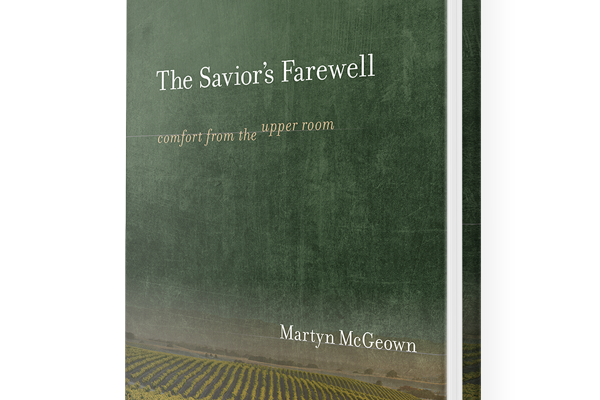Your cart is empty now.
The Time Appointed by the Lord - A "Believing and Confessing" Meditation
It must be of great comfort to us as we see the unfolding of history around us—a history which is often chaotic, confused, and frightening—that the future is not in the hands of men and nations, or even in the hands of the devil. The future is in the hands of God. “Known unto God are all his works from the foundation of the world” (Acts 15:18). Therefore, history cannot either end one moment before God has determined or continue one moment longer than he has planned. Article 37 calls this “the time appointed by the Lord.”Book Review - The Savior's Farewell
The following review was written by Roger G. DePriest of Virginia Beach Theological Seminary, Virginia Beach, VA, on the book The Savior’s Farewell: Comfort from the Upper Room, by Martyn McGeown (Jenison, MI: Reformed Free Publishing, 2022). This review was originally published in the Detroit Baptist Seminary Journal.
To be sure, McGeown’s work is a treasure trove of exegetical and pastoral insights, and, from that interest alone, pastors will want to lean into this resource. There are several places, however, where those who do not share the Reformed hermeneutic (such as this reviewer) will find reasons to balk here and there. This is because McGeown stands firmly in the Reformed camp, so it is to be expected that his theological commitments will inevitably show.
Book Review - The Mystery of Bethlehem
The following review was written by Joshua Vink on the book The Mystery of Bethlehem by Herman Hoeksema (Jenison, MI: Reformed Free Publishing, 1986). This review was originally published in the December 2023 issue of The Grandville Gleaner.
A multitude of books, articles, and sermons have been written on the topic, but the story of Christmas can never be exhausted. Where would we be without the birth of our Lord and Savior? Herman Hoeksema writes in the hope of kindling anew that interest in the heart of the reader.
















